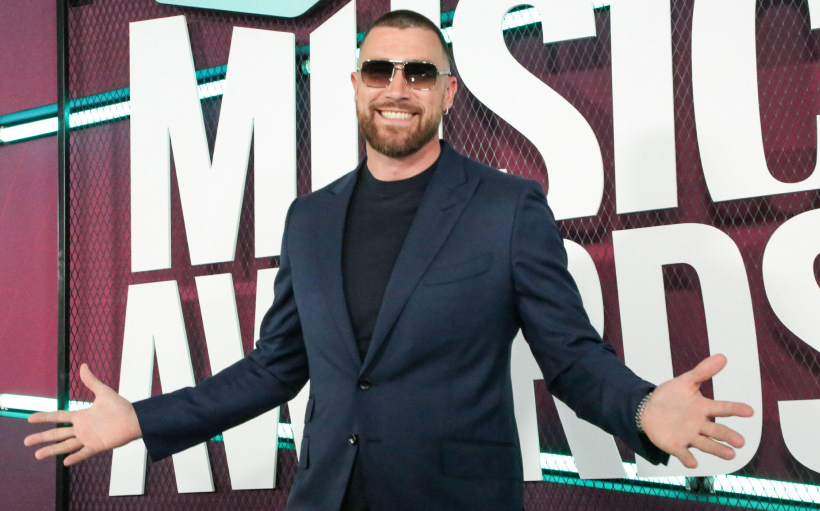After taking a required Intro to Psychology course as an undergrad, I have never looked back. Since my doctoral program, I have specialized in adult relationship therapy. Through my studies and clinicals, I wrote several articles for professional journals and currently in the midst of writing a book.
On the Rebound—Where Your Relationship Goes?
When your long-term relationship ends horribly, your pain seems too severe to stand. You enter your personal Dark Ages of emotional vulnerability and never-ending grieving. The same thoughts go through your mind: how alone you feel without your significant other, how harsh their betrayal is, how broken your heart will forever remain. And in this state, a rebound relationship seems like a great escape from the dark reality of your previous relationship.
But is jumping over your past relationship into a new one a good strategy?
If you are looking for a long-term healthy relationship based on deep emotional connection, many professional therapists advise going through the grieving and healing processes before putting yourself out into the “market” again.
But if the emotional support and sympathy you receive from yourself and the people around you is not enough, a new relationship can help you get better faster. So, let’s see when a rebound relationship is good and bad for your self-development and healing and whether it’s OK to jump into a new relationship immediately.
Defining a Rebound Relationship
“A rebound is often brief, and can be emotionally confusing, as members can be unsure of what they want and are still heavily emotionally engaged with the past. Most people find themselves in rebound relationships unconsciously, but sometimes it is very intentional.”
Micaela Stein, LCSW
A rebound relationship is an affair that happens before the healing process of a past relationship has finished.
Even though a rebound relationship helps to forget quickly about the pain from a former relationship and includes a strong emotional connection with a new partner, it does not typically last long. And even before a new breakup takes place, the emotional needs are rarely satisfied.
The conflicts usually include the partner from a previous relationship. At times, they make the new partner feels like there is a third person in the room. This happens because the healing process was disrupted initially.
Typical reasons why people seek rebound relationships:
- The need for validation that you are attractive and worthy
- A desire to make the partner from a previous relationship jealous, hoping that they may come back
- The ability of a new partner to serve your emotional needs and address your feelings, making a new relationship more desirable than independent hard work on healing, etc.
When people don’t recognize these wrong reasons, they can easily jump between several rebound relationships, one after another. They may all look good initially, but unfortunately, each new relationship entered into as a rebound will not typically be lasting.
Related reading: Is It Love or an Illusion? 16 Clear Signs You Love Him
Are Rebound Relationships Healthy?
Yes and no. They can certainly serve to validate that you are still attractive to others and that you can show others that you are. And there is certainly a boost in your self-esteem, which is good.
On the other hand, rebound relationships will almost always end within a year. And the chance you will be back at square one, still in need of the grieving and healing you need to move your life forward, are high.

7 Signs of Rebound Relationships
“Don’t rush into another relationship. Take this time to work on yourself and get in touch with parts of yourself that you may have hidden during your relationship.”
Adam Borland, clinical psychologist and relationship therapist
In most instances, a rebound relationship brings you short-term joy but still leads to another painful breakup. That’s why it is so important to recognize the traits of a rebound relationship in time to get ready for possible consequences.
Here is your list of 7 striking signs of a rebound relationship. If your current relationship has several signs of these, you’d better address them before you become emotionally vulnerable again.
1. Spending Too Much Time Talking About the Ex
If you cannot dedicate enough time to get to know your new partner, explore your compatibility, and enjoy being together because you cannot stop comparing them with your ex, that’s a sign of a rebound relationship.
If you haven’t finished healing and getting over them, someone else will always be “in the room.” And you end up spending far too much time discussing details about that former partner, which is a clear sign that they still have unresolved feelings.
Related reading: Thinking About Getting Back with Your Ex? Read This Before You Go!
2. It’s Mostly a Sex Relationship
There is nothing wrong with having a sexual rebound relationship as long as both partners understand these are the “rules of the game.” No one wants to be someone’s rebound or reactionary relationship without knowing that sex is the whole point and that there is no emotional availability. It’s simply unfair and a bit cruel.
If you consciously enter a rebound relationship, you should make it clear to your partner that your “third” will also stay in your bed.
Related reading: ENM Relationship: What Is Ethical Non-Monogamy?
3. The Time Since the Last Breakup Has Been Really Short
“[A rebound relationship is] …warped by unresolved issues, pain, and unresolved grief from one or more previous romantic entanglements. It is using other people as a Band-Aid to cover our wounds.”
Dr. Jen Mann, marriage and family therapist
Even a few months may be too soon for some people to start something new after a previous relationship. Your wounds are still open, and you cannot stop thinking about your broken heart.
So if either of you characterizes your past relationship as a difficult breakup and continues to talk about it, it’s a pretty clear sign that you or they have not really moved on – certainly not ready for any type of new committed relationship.
Related reading: What Are the 5 Signs the No Contact Is Working?
4. Your Conversations Are Superficial
Your romantic relationship should start as an emotional connection on different levels – far more than a sexual relationship. Ideally, you should spend intimate time with lots of conversation on goals, dreams, etc. That’s how a romantic relationship progresses into a healthy relationship.
A serious relationship equals serious talk.
But if you or your current partner has no interest in these conversations, you are not ready for deep attachment with anyone else. And if either partner is making this new relationship “public” on social media, it is probably an effort to make their ex jealous.
Related reading: Disorganized Attachment Style & Romantic Relationships
5. The Actual Relationship Moves Rapidly
Serious romantic relationships usually follow a trajectory:
- A honeymoon phase is when the partners are enamored with one another
- Rather standard relational processes where a couple takes the time to get to know each other more intimately
- Deciding if this is a real relationship that could be serious
By this time, couples are ready and willing to satisfy the intellectual, physical, and emotional needs of each other. They are interested in each other’s personal growth as well as the growth of the relationship as a couple.
A rebound relationship progresses quickly, from meeting up to being attached at the hip, with nothing in between. One of the other partners begins to broadcast that relationship everywhere. But there is no substance underneath this facade. they want to be back in the dating scene for all to see.
6. No Move to Include the New Person in Normal Intimate Circles
Those who are contemplating a long-term relationship with someone are usually happy to introduce their new relationship partner to close friends and family members. They bring that person to events, so that every aspect of their life is introduced to them.
Rebound relationships do not include these activities. You just don’t have time or motivation to include the new person in your “normal” life.
Related reading: A Guide to Growing an Exclusive Relationship
7. You Don’t Discuss Long-Term Plans
A rebound relationship is typically devoid of making any future plans beyond the next few days. This is because either you or your new partner has no interest in a serious emotional attachment. In fact, the person on the rebound is emotionally unavailable because they are still healing from their recent breakup and are still in the “rebound effect.”

5 Stages of a Rebound Relationship
According to psychologist and relationship management expert Jaseena Backer, rebound relationships go through five stages from initial attraction to disillusionment and breakup. They do serve a purpose, as long as both parties are aware of this – getting over an ex and using the new relationship to do just that. Let’s see what the typical stages of a rebound relationship are.
Stage #1: Attraction
Attraction is the first stage when a person suffers self-esteem issues after a breakup and quickly starts dating again. That’s why rapid pace is one of the clearest signs of a rebound. Emotionally vulnerable people tend to “fall in love” and start dating fast to assure themselves that they are still attractive to others.
And the one who did the dumping may look for attractions because they feel free and ready to roll. It can make a person feel better when in love, but it’s too fast to identify love at this stage.
Related reading: Are You in Love or Lust? Here’s Your Answer
Stage #2: Intimacy
Intimacy is related to attraction because someone who has been dumped wants to feel physically appealing. And so, rather than engaging in some self-care to get a new, appealing look, they seek sexual intimacy with someone else.
And the more sex activity they enjoy, the more they can avoid discussing their breakup and its pain.
Stage #3: Show and Tell
No one wants their friends and acquaintances to think that their life is in ruin because of a serious relationship ending. And so, they grab onto their new current relationship and make it as public as possible, including posting photos on social media and taking them to parties or bars where people they know hang out.
However, sometimes the opposite happens: people in a new relationship choose to hide each other from others, being ashamed to show the affair that is not as good as their previous one.
Stage #4: Comparing Your New Squeeze to Your Old Partner
A person who has jumped into a rebound relationship is really not over their ex, even if they were the dumper. And so, they begin to compare the behaviors of the two.
This can lead to heavy criticism or, if the behaviors are similar, to longing for that last relationship. The result in both instances is negative emotions toward this new partner.
Stage #5: Disillusionment
At this point, you realize that this new “partnership” is nothing like your last relationship, and there is no point in living this lie anymore.
It’s no one’s fault really. It just shows that you are not over the one relationship that was so meaningful, and you need to take time to do that. Learning this lesson will be the first step toward healing and your own mental health. If not, you’ll soon enter the new affair in the sequence of rebound relationships – and experience all these stages again.

So Are Rebound Relationships Good or Bad?
As we’ve identified here, rebound relationships mostly happen for the wrong reasons. People jump into these affairs amidst the grieving process and bring their pain into the new relationship. At the same time, according to Claudia C. Baumbaugh and R. Chris Fraley, not all rebound relationships are bad. Even if they end tragically, they still are beneficial, including greater confidence in desirability and chances to get over a past relationship faster.
So use your rebound relationship – to learn more about yourself and not to escape the hard work you need to finish.
With or without a new affair, you need to begin the process of healing from the initial breakup. That’s the only chance to make your current rebound relationship healthy or find a happy relationship in the future.
If you are unsure where and how to start, try online therapy with a licensed therapist. Choose the one you feel most comfortable to be in open communication. It’s necessary because when a relationship ends, you need to take time to process what happened and how to avoid the same painful end in your next relationship. A therapist can guide you through the process of grieving and healing before you meet your new love.
In addition to that, it’s important to be mindful of other steps you should take before searching for a next relationship or fixing the one with your current partner:
- Be mindful of all types of self-care and mental health practices that will make you feel better about yourself
- Get out and socialize with friends and co-workers. There is no stigma to being single today.
- Do think about your past relationships and focus on the good things about them – having good memories helps you understand that relationships all have positive aspects, even if they didn’t work out. Rebound relationships tend not to leave such great memories after a breakup. There just wasn’t an attachment.
- Be open and embrace your feelings after a breakup. You have a right to them all.
Above all, know that you will land on your feet. And good luck with your healing – it’s a hard but always beneficial process!








